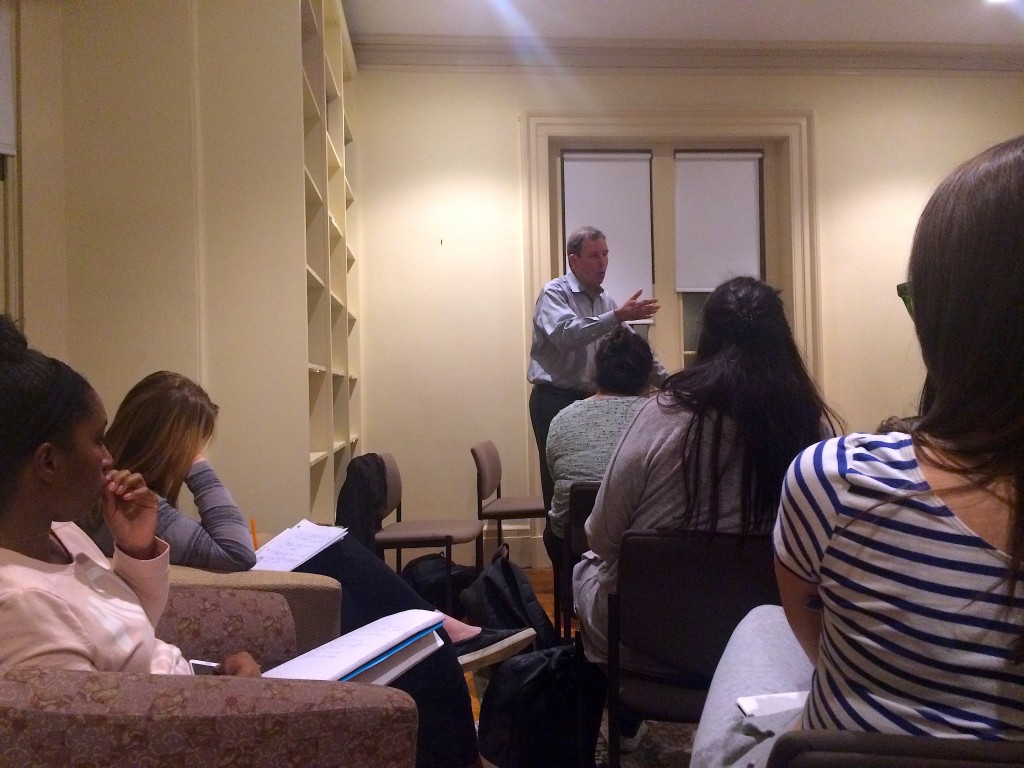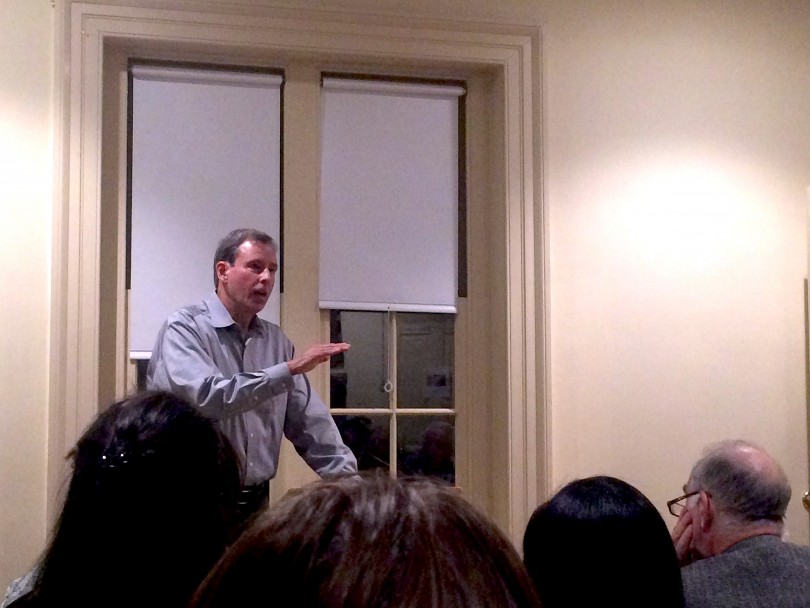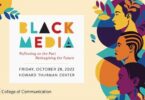By Alexandra Werner Winslow
BU News Service
The results were so overwhelming they had to change the contest. In 2010 the American Bar Association’s ABA Journal withdrew Atticus Finch as a candidate for America’s favorite lawyer because editors deemed it unfair to weigh other options against such a “demigod.”
That all changed in 2015 with the publication of “Go Set A Watchman,” the recently discovered early draft of Harper Lee’s “To Kill A Mockingbird“.
“It’s the desecration of an icon,” said John T. Matthews, a professor of English at Boston University, who threw his hat into the ring Tuesday night with a lecture on the controversy surrounding the novel’s publication earlier this year.
“Go Set A Watchman” portrays Finch in his old age as a racist, disturbing both his place and that of “To Kill A Mockingbird” in the country’s imagination.

John T. Matthews, professor of English at Boston University, lectures November 3, 2015 on the controversial “Go Set A Watchman.” (Alexandra Werner Winslow/BU News Service)
“”Go Set A Watchman” taints ‘To Kill A Mockingbird,’” said Matthews, speaking to an intimate crowd of about 30 students and faculty. “’To Kill A Mockingbird’ represents the best of what we can believe of ourselves, but ‘Go Set A Watchman’ reveals how the feelings of white liberals — however well-intentioned — still cannot be depended upon to redress the evils of racism.”
Matthews’ 40-minute talk included topics from Ta-Nehisi Coates to the 2015 shooting in Charleston, S.C., drawing connections between what he called the “discovery of racism” in Lee’s work and the state of race relations in America today.
“Reading ‘To Kill A Mockingbird’ made me realize my status in society,” said Desiree Hiankson, a student at Boston University who attended Matthews’ lecture. “I went to a predominantly white, all girls’ school where I was one of the few black girls in that grade. So for ‘Watchman’ to be released now – what does it mean?”
Attempting to answer her question, Carmen Pierce, a classmate at Boston University, chimed in.
“My takeaway from ‘To Kill A Mockingbird’ was that we should hold hands and be colorblind, but now, living in this world where ‘Watchman’ exists, you have to come to the realization that racism has gotten to be progressively worse, too,” said Pierce. She laughed. “Maybe I came away from the book with a lot more pessimism than other people.”
The publication of “Go Set A Watchman” in July of this year was widely seen as suspicious timing amidst the declining health of author Harper Lee and the death of her sister, Alice Lee, who had served as a longtime caregiver. News sources including NPR and BBC News questioned whether Lee had full control of the decision to release what Columbia University’s Rare Book & Manuscripts Library confirmed was an early draft of “To Kill A Mockingbird,” rather than a sequel or independent work.
“Lee’s lack of agency — if you want to read it symbolically, this book doesn’t belong to Harper Lee. It belongs to us,” Matthews said.
Oprah Winfrey once dubbed “To Kill A Mockingbird”, which won the Pulitzer Prize for Fiction in 1961, “our national novel.” The shadow that “Go Set A Watchman” casts on the work has generated great anxiety among the original novel’s vast fan base this year, but at least according to Matthews, that may not be a bad thing.
“It’s a welcome complication. We have national blindspots. “Go Set A Watchman” makes viewers see things they might wish to avoid,” Matthews said.





